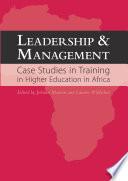Now-a-days education and training is one of the largest industry globally. Many aspiring individuals, having expertise in different field, are looking for profitable education business ideas. Education industry is certainly one of the fastest and steadily growing sectors now worldwide. The process of establishing a new business is preceded by the resolution to select entrepreneurship as an occupation. This calls for recognizing lucrative business ideas upon a meticulous evaluation of the entrepreneurial prospects. Creation of business ideas is not sufficient, they must be tested on techno-fiscal, economic and authorized viewpoints. NPCS Team has identified some projects for the Investors and these Project Profiles conduct a profound road map for Effectual business venture. It discusses about requirement of finance, plant & machinery, regulation & standard for educational institutions, etc. The major contents of this book are project profiles of projects like Dental College, Engineering College, Industrial Training Institute (I.T.I.), Management College (BBA, MBA, BCA & MCA), Marine Engineering College, Medical College With Hospital, Pharmacy College (B. Pharma), Polytechnic College, Residential School, School (CBSE Pattern), School Approved By IGCSE (International General Certificate of Secondary Education). Project profile contains information like introduction, Space requirement, Plant Economics, Land & Building, Plant & Machinery, Fixed Capital, Raw Materials, Total Working Capital/Month, Cost of Project, Turn Over/Annum, Rate of Return, Break Even Point (B.E.P). This book is very informative and useful for relevant Investors, Promoters.
Though we have developed well in higher education system, a limited infrastructure facility is there in most of the educational institutions. Opening school in India is a herculean task, however more and more people are entering in ...










